- Memories of Nicholas Schaffner and The Beatles Forever - January 4, 2026
- Old Draft: Beatles Folk Memory 1970-1995 - December 8, 2025
- Lights are back on. - December 8, 2025
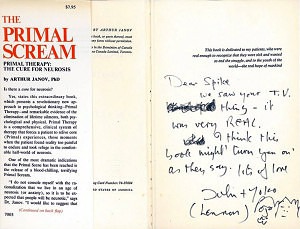
After watching a TV program on Spike Milligan’s battle with depression, John Lennon sent the comedian a book.
In the comments on the John and Mimi post, @Karen and some others have elucidated a theory that I’ve toyed with for years, myself: that John Lennon, Chief Beatle and beloved by all denizens of Dullblog, suffered from bipolar disorder.
Formerly called manic depression, bipolar disorder is “a condition in which a person has periods of depression and periods of being extremely happy or being cross or irritable. In addition to these mood swings, the person also has extreme changes in activity and energy levels.” (Definition courtesy of the University of Maryland Medical Center.)
The U of M page goes on:
Bipolar disorder affects men and women equally. It usually starts between ages 15 and 25. The exact cause is not known. But it occurs more often in relatives of people with bipolar disorder. In most people with bipolar disorder, there is no clear cause for the periods (episodes) of extreme happiness and high activity or energy (mania) or depression and low activity or energy (depression). The following may trigger a manic episode:
Childbirth
Medicines such as antidepressants or steroids
Periods of not being able to sleep (insomnia)
Recreational drug useThe manic phase may last from days to months. It can include these symptoms:
Easily distracted
Little need for sleep
Poor judgment
Poor temper control
Reckless behavior and lack of self-control such as drinking, drug use, sex with many partners, spending sprees
Very irritable mood, such as racing thoughts, talking a lot, false beliefs about self or abilities
Very involved in activitiesThe depressive episode may include these symptoms:
Daily low mood or sadness
Difficulty concentrating, remembering, or making decisions
Eating problems such as loss of appetite and weight loss, or overeating and weight gain
Fatigue or lack of energy
Feeling worthless, hopeless, or guilty
Loss of pleasure in activities once enjoyed
Loss of self-esteem
Thoughts of death or suicide
Trouble getting to sleep or sleeping too much
Pulling away from friends or activities that were once enjoyedPersons with bipolar disorder are at high risk of suicide, [and using] alcohol [or] other substances.
This can make the symptoms and suicide risk worse.Episodes of depression are more common than episodes of mania. The pattern is not the same in all persons with bipolar disorder:
Depression and mania symptoms may occur together. This is called a mixed state.
Symptoms may also occur right after each other. This is called rapid cycling.
For me, there’s a lot here that resonates with John Lennon. From what we know about his life, let us address this issue, and see if we can’t come to some reasonable conclusion. Was John Lennon bipolar? And more to the point: how can the etiology of bipolar disorder explain and illuminate the story of John Lennon’s life, and the story of the Beatles?

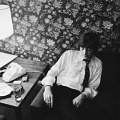
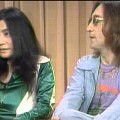
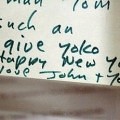
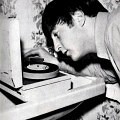
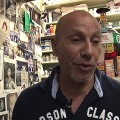

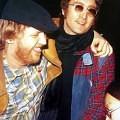
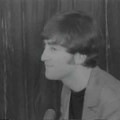
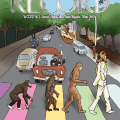
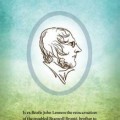
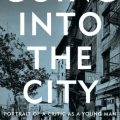
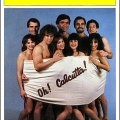
Hi Michael, thanks for the thoughtful insights. This is my first post but I have been reading this blog for a while. If you forgive my poor English, here are my two cents:
It seems to me that John was more likely suffering from a major depression than bipolar disorder. He did seem to be quite easily provoked, but it could be that he simply had an aggressive (compulsive as well?) personality – just like his zodiac sign: dragon :). But there were few signs that he was regularly experiencing manic or hypomanic episodes (a hallmark state of bipolar disorder) in his final days. The hypomanic state (more common than manic state) is marked by great mood, excessive energy, excitement, in addition to irritability. When a BD patient is in a hypomanic phase, he/she can be quite productive, starting lots of projects but is easily distracted. Having lots of half-finished work is quite typical for BD patients. But I didn’t see this in John Lennon, at least not from what I have heard. Instead, many people mentioned about John’s reclusive+sedentary lifestyle, loss of weight, suicide attempt, etc. If he was constantly low, he was more likely to have depression than bipolar disorder.
Suicide attempt, @WJ? You mean in the Tokyo hotel room?
I know this post/comments are from six years ago, but I wanted to ask if this is true – that John made a suicide attempt?
Could you (or anyone else) explain please because I’ve never heard of that. Has it been written about, implied or discussed somewhere else before? I did read an interview John did where he said he had thought about it, when he was a teenager and his audio diary, where he mentions jumping out the window.
WJ’s comment makes it sound like it occurred during Johns ‘house husband’ years:
‘Instead, many people mentioned about John’s reclusive+sedentary lifestyle, loss of weight, suicide attempt, etc.’
@Georgina, I’ve assuming that was referring to the audio diary.
Wondered about this too. I find it interesting to map the possible highs and lows that we know about:
1963 through mid-1964 seems like a high. “Becoming world famous and having your teenage dreams come true” isn’t listed as a trigger for a manic episode, but it certainly seems possible that such events could trigger a manic episode. Not to mention excessive recreational drug use—Prellies.
Somewhere in late 1964, John sinks into a trough. Witness the downbeat songs on Beatles for Sale, the Help! “Fat Elvis” phase, etc. It seems like this lasts until late 1965, at least.
I don’t really know where John “was” for the first half of 1966. He was starting to use LSD, but he hadn’t had the opportunity to trip for days that would really change him later on. It sounds like he was pretty depressed in Spain.
November ’66 – August ’67 seems like another manic phase. Yes, John is checked out regarding band leadership, but he’s staying up for days on LSD, working on Pepper, and there’s plenty of evidence that, despite the “wasting away in Weybridge” narrative, when the Beatles weren’t recording, he was spending a fair amount of time in London partying with the Swingin’ Elite.
I think from Eppy’s death to May ’68, there’s another depressive episode. On returning from India, the most notorious possible manic phase begins. Yoko, heroin, hostility toward Paul and the other Beatles, then the peace movement, etc. This is the era that used to make me wonder if he was bipolar.
Sometime in 1970, I think another depressive episode began. That’s part of what led them to Janov, I believe—John was getting really bad.
I’m not as well versed in the next couple of years, but John’s 1972/STINYC period seems like another manic phase—and he was apparently back on heroin at this time. The supposedly “Lost Weekend” also seems like a manic phase. Lots of recreational drug use and drinking, and the simultaneous fear of abandonment and liberation in full swing.
According to Goldman, John got truly, and badly, hooked on heroin and turned into the Dakota Years recluse after Sean’s birth. It seems like 1976-early 1980 were a long, depressive period for him.
And sadly and finally, in late 1980, John would seem to be in another manic phase.
Thoughts?
EDIT: Read the original post again, and it sounds a lot to me like the Lost Weekend was a mixed state. Which would make sense, because I think being apart from Yoko was both traumatizing and exhilarating for John.
Interesting, @Michael. Piggybacking on your chronology, here’s my preliminary take:
.
1. 1963-1964: John is essentially eurythmic, although there are signs that he is experiencing minor mood episodes. These will “kindle” future episodes later in his life.
.
2. 1965–66: Affective episodes, both depressive and manic, are increasing in frequency and severity. John begins to self-medicate in earnest. His sleeping and eating habits are off the wall.
.
3. 1967: Another period of eurythmia, likely due to the cessation of touring, although not as stable as the 63–64 period, because of the kindling effect of earlier affective episodes.
.
4. 1968-69: It’s hard to assess John’s behaviour during this period because of his heroin use, but I think there is some evidence that John was losing touch with reality. Commonly, this is referred to as having a bipolar episode with psychotic features. (I’m thinking of a meeting John arranged at some point in the Let It Be debacle, to inform everyone that he was Jesus Christ. Wow.)
.
5. 1970-73: John is beginning to recognize that he has a problem. He is experiencing increasingly severe depressive episodes and sees Dr. Janov. His hypersexuality, which had been developing over the past decade, is now in overdrive. He and Yoko discuss alternate ways that John can get his needs met. Enter May Pang.
.
6. 1974–75: John’s condition worsens; he is likely experiencing more frequent and severe episodes of mania and mixed states, aggravated by drinking and drugging.
.
7. 1975-1980: The drastic change in John’s lifestyle sees a lessening of the more manic elements of his condition, but depressive episodes worsen. John begins to recognize that he has some kind of mood problem and tries to ameliorate his symptoms, under Yoko’s tutelage. He goes on a diet and loses a shocking amount of weight., which likely undermined his mental health status.
A great idea for a post, MG. As someone who has Bipolar Disorder, I’d like to offer some additional information which may help inform the discussion:
.
1. Bipolar Disorder (BP) is a disorder of mood. It is not a psychosis, although a small percentage of persons with BP can experience a psychotic episode.
.
2. There are two main classifications of BP–BP 1, BP2. BP2 is a milder version, with less severe depressive and manic episodes.
.
3. The biggest misrepresentation of a person with bipolar disorder is the depiction of mania. Manic episodes don’t necessarily involve crazy behaviours like painting your house orange or ordering a goat off the internet. Mania is an internal state of over-stimulation, like god is playing whack-a-mole in your brain. Sometimes a person in a manic state might appear to have ADHD.
4.Many persons with bipolar disorder experience something called ‘hypersexuality’. (Something I never experienced, damn it. 😉 )
.
5. To be in a mixed state is to be in a special kind of hell. Many suicides or suicidal attempts occur while in a mixed state.
6. Mood changes can occur slowly over time, or quickly. “Rapid Cycling” is the term used to describe mood changes which occur in short periods of time (i.e, weekly.) A rapid cycler is automatically considered BP1.
@Karen, two questions based on @michael’s chronology:
1) to what degree are manic episodes, or depressive episodes, triggered by external events? Are they artifacts of brain chemistry, reactions to external events, or some mix?
2) does the condition change over time? And if so, is there s characteristic shape to the change?
“@Karen, two questions based on @michael’s chronology:
1) to what degree are manic episodes, or depressive episodes, triggered by external events? Are they artifacts of brain chemistry, reactions to external events, or some mix?
2) does the condition change over time? And if so, is there s characteristic shape to the change?”
.
Great questions, MG. Regarding the first:
.
1. “To what degree are manic episodes, or depressive episodes, triggered by external events? Are they artifacts of brain chemistry, reactions to external events, or some mix?” The best answer is all of the above. External events, particularly those which produce states of emotional stress or lability, can jumpstart an affective episode in a heartbeat. The other thing that can trigger mood switches–and this is a big one– is sleep disruption. And since stressful events can produce insomnia, it’s a double whammy. It’s not surprising that we’re seeing more and more celebs getting diagnosed with BP.
2) “does the condition change over time? And if so, is there a characteristic shape to the change?” Yes to both, particularly when the illness goes untreated and lifestyle triggers aren’t corrected. Affective episodes will eventually increase in frequency and severity.
Thank you @Karen for your insight. This is a fascinating way to map Lennon’s unraveling. Also, I bet there aren’t many studies on the effects of diurnal LSD use on undiagnosed bipolar disorder, but I am equally confident that there is no way that such use can’t have a powerfully disruptive effect on stability.
It would seem that John’s possible manic and depressive episodes (going with the hypothesis that he did suffer from some form of BPD, I’m just going to characterize them as such) were triggered my a mix of external events and internal brain chemistry changes. For example, why doesn’t the stress and sleep disruption in Hamburg or 1963 trigger a serious depressive episode? But in 1964, it seems like after the American tour finishes, John falls into a depressive state. Maybe weed, and its ability to make John look inward instead of outward (like speed would do), interacted with the effects of stress, an unhealthy lifestyle, and disrupted sleep, was the trigger?
It definitely seems to me that the stress of coming back from India (with whatever happened to him there), the obvious end of his marriage to Cynthia, and returning to his old life of Weybridge, London and Abbey Road after he was profoundly changed or opened up in Rishikesh, jumpstarted an affective episode. Yoko’s arrival a couple weeks in only compounded that. This is May ’68, and that’s when John also convened the Jesus meeting. He seems to have been going nonstop from then until late 1969/early 1970.
Interesting about the hypersexuality. I just started reading Giuliano’s “Lennon in America,” with several bags’ worth of salt. But between that and Goldman, the portrait emerges not simply of a horny rock star a la Paul McCartney or Mick Jagger, but of someone who cannot contain overpowering sexual urges. FWIW—and this belongs in a older comment thread—the book also alleges outright that John was bisexual and suggests that John and Stu had a romantic, then briefly physical, relationship. (It also reports that John was spotted “passively engaged in anal sex” with another man, by a partygoer, in 1965. My reaction to this is—yeah, that seems possible.)
“…For example, why doesn’t the stress and sleep disruption in Hamburg or 1963 trigger a serious depressive episode?”
.
Good catch, @ Michael. Maybe the answer relates to the kindling effect–the idea that earlier, milder episodes give rise to more acute episodes later on. I know that in my case I had lots of sleep disruption in my youth and my mood was all over the map. I was always told, and assumed, that I was just moody. 🙂
.
John’s sexuality doesn’t seem to fit the ‘norm’ (and I use that term very loosely) even as a youth. It’s hard to separate fact from fiction, but when you consider what we DO know about John’s sexual exploits (i.e., getting a BJ from a transvestite when he was in Hamburg; engaging in a threesome with beat poet Royston Ellis) we know he was a pretty open guy. And Paul McCartney’s comment about knowing a lot of “juicy things” about John, but not wanting to spill the beans for fear of hurting Cynthia or Yoko, is telling. What about John’s past sexual behaviour would hurt Yoko? She married him after the sexual craziness of Beatlemania; she was a worldly woman; what would be so hurtful that Paul would never tell as long as she was alive? Makes you wonder.
.
In his taped diary, John lamented his unremitting and uncontrollable sexual urges. He said that he thought it would have diminished by now but was upset that it hadn’t. Here’s what he said:
.
And I totally agree with you about the LSD–unimaginable how that could NOT have messed with his head.
Um, the last paragraph sounds like a conversation in every comedy writers’ room I’ve ever been in. Sex makes us all into morons, and after a decade or two of it… Not to disagree that John’s libido might not be a clue for us all — but that last bit seems like simply the lamentations of every highly sexed person I’ve known.
” Not to disagree that John’s libido might not be a clue for us all — but that last bit seems like simply the lamentations of every highly sexed person I’ve known.”
.
I’ve never known someone like that–damn, I gotta get out more often. 🙂
Karen, Louis C.K. has a bit that talks about essentially the same thing. According to my husband, this is pretty much what it’s like to be a guy. (not that I would know, or can speak for all guys, of course!)
Me either, Chelsea. :). I do wonder just how many guys are upset about it though. I have a hunch that John is expressing something other than wanting too much sex.
Edited to add: Men usually lament about not getting enough sex, not the fact of their sex drive. That’s what struck me about John’s musings.
Well, John is special. 🙂 Actually, now that I think about it, I’ve had other close male friends complain about it, too. Just how sexual urges and thoughts can be so prevalent and obtrusive to the point that it’s genuinely tiresome. For example, one friend always complained about the semi-nude magazines at the check-out counter when he was just trying to do his shopping. 😉
My impression is that JL often felt out of control (of his emotions, thoughts, life in general) so this complaint form him isn’t surprising at all.
I dunno. Food for thought.
@Chelsea,
“sexual urges and thoughts can be so prevalent and obtrusive to the point that it’s genuinely tiresome”
This exactly. After a couple of decades, it gets old. Now, I hasten to add that I’ve read several books lately that suggest that men and women are much more similar in their level of appetite, and that the “ravenous male and coy female” is a social construct, not a biological one.
The other thing that John would have to contend with is satiation. John Lennon, unlike most people, could have anybody who attracted his attention. That is a peculiar situation, a heaven that may well have been somewhat tiresome — no thrill of the hunt.
Have you read Sex at Dawn? I read that last year and it really blew my mind.
Oh yes indeed, @Kevin. I read it about two years ago, and it was… lemme put it to you this way: every other page, I was thinking, “YES. This is just how I think of it, too!” Here’s how I reviewed it on Goodreads: “Fascinating and persuasive; provides a narrative of human sexuality which is infinitely healthier and more humane than the ‘standard version’ of war between the sexes.”
For those of you who haven’t read it, Sex At Dawn contends that “human beings evolved in egalitarian groups that shared food, child care, and, often, sexual partners. Weaving together convergent, frequently overlooked evidence from anthropology, archaeology, primatology, anatomy, and psychosexuality, the authors show how far from human nature monogamy really is…The authors expose the ancient roots of human sexuality while pointing toward a more optimistic future illuminated by our innate capacities for love, cooperation, and generosity.”
The custom of men trading money and protection for sexual exclusivity from women has always felt utterly barbaric to me, probably because I was raised by a gaggle of ladies (some related, some not), and saw and felt the sharp edges of that system. It’s dreadful, and hurts everybody — children, women, and men, too. Gotta be a better way. I think Sex At Dawn does a lot by loosening the idea that patriarchy-enforced monogamy — really, booty-hoarding men and squelched women — is “natural” and thus immutable. If there’s one thing the Beatles say over and over, it’s that love is real, love is powerful, and love is boundless, and I really feel that in my bones. On the other hand, a better day won’t come unless we start by looking at children very differently — that they aren’t a weird kind of property or wealth (owned by the father, tended by the mother), but human beings who have a right to grow up strong and healthy and with proper support. Children are everybody’s responsibility, and the shift from “partible paternity” to the primacy of paternal bloodlines has turned birth into a lottery, responsible for everything from Dickens’ workhouses to George W. Bush.
Anybody else read it? I’ll start a new thread if asked — because I think this (and sperm competition, a la Sperm Wars) has a direct bearing on the Beatles story.
My wife recently picked up Sex At Dawn as research for a TV pilot so I am expecting my life to turn into a sitcom at any moment. “Dear, why is there a pizza delivery boy in our closet?” 🙂
Well, @Karen, I’m happy to make introductions. 🙂
“Well, @Karen, I’m happy to make introductions.”
I KNEW there was a reason I liked you!
.
It looks like I’m outnumbered on the sexuality issue, but I still think John’s sexual behaviour is more symptomatic than idiosyncratic. That’s my story and I’m sticking to it. 🙂
Not disagreeing about John’s sexuality. Just making a drive-by comment re: male sexuality as I’ve lived it (and others have, too).
The interesting thing is: does showbiz attract people with high libidoes? I would wager “yes.” And I bet it attracts bipolar people as well. The pressurized, burst-like schedules I’ve encountered in entertainment seem to require spells of mania; they are not structured for good mental hygiene.
Testosterone is one helluva drug, y’all- maybe the strongest of all. It might be more difficult to deal with it if you could satisfy the lizard brain as easily as John could….
Speaking of drugs, I wonder if the LSD didn’t dampen his sex drive? I’ve always had a difficult time comprehending Lennon’s acid intake. I never took acid myself, but John was taking LSD and speed for a good 18 months… His public image from the time doesn’t quite reveal the toll. Revolver, Sgt. Peppers, MMT… very productive time for the band. Hindsight shows us that Macca was stepping to the fore, but John certainly doesn’t seem like a lost soul.
The grandiosity I associate with mania didn’t come really until the Yoko era, as far as I can tell.
@King, I think I remember Goldman saying that acid killed Lennon’s sex drive. That could’ve also contributed to him and Cynthia “living like brother and sister.”
I can tell you that a heavy dose of LSD is absolutely incapacitating. Personally, I can’t imagine having sex while tripping. It’s such a mental experience and your mind is in such intense sensory overload… uhh, your brain is kinda just too busy to pay attention to your loins. This is also why (I suspect) nobody eats on acid. There’s just too much going on already. It’s not at all like pot, which makes sex, food, everything more interesting and fun. 🙂 And you can smoke weed and like, put together an IKEA shelf or something (it might just take a bit longer than usual!). With acid you probably wouldn’t even get the box open (Wow, that was one of my most special metaphors ever).
As far as John’s usage, I always assumed it was intermittent in 1966 (Revolver period) , and not a daily/semi-daily thing until the Pepper era. If that’s the case, there’s no reason why it would be detrimental to him in ’66 at all. It most likely fed his creativity rather than drained it.
To me… and this is just my personal anecdotal opinion… you can get to a point of diminishing returns with acid. Really, if you do it right and have a good experience that you get a lot out of, you can take that one event with you forever. Maybe a few times more if there is something specific you want to experience. But once you get to the point where it’s “recreational?” I think it’s lost its luster.
So once John gets to a point where he’s tripping at home basically nonstop…. (Again, LSD renders you useless and takes FOREVER to wear off… You really need to be “unemployed” and in the safety of your home in Weybridge to be doing it all the time.) That very much sounds like someone desperately trying to escape reality. He couldn’t have been enjoying himself much. In fact, I think I read a quote that he finally quit dropping acid because he had “too many bad trips.” Ugh.
Maybe John enjoyed the dampening of his libido during this period? It definitely dampens your aggression too. This is the perfect snapshot of Pepper-era John: skinny, asexual (less sexual), docile.
@Chelsea, I remember Paul — or maybe it was John — quoting the philosopher and Buddhist Alan Watts (whom everybody should know if they have the merest smidgen of interest in such stuff) on psychedelics: “Once you get the message, hang up the phone.”
Here’s the full quote [bold by me]:
“Psychedelic experience is only a glimpse of genuine mystical insight, but a glimpse which can be matured and deepened by the various ways of meditation in which drugs are no longer necessary or useful. If you get the message, hang up the phone. For psychedelic drugs are simply instruments, like microscopes, telescopes, and telephones. The biologist does not sit with eye permanently glued to the microscope, he goes away and works on what he has seen…”
Here is Alan Watts’ page on Erowid.
“If you get the message, hang up the phone.”
Yes. Much more succinctly and artfully put.
Alan Watts brings it. Highly recommended.
The biologist does not sit with eye permanently glued to the microscope, he goes away and works on what he has seen…”
ABSOLUTELY..
I made a comment in an earlier thread about John’s songs “I’m So Tired” and “Yer Blues”, written in India, the former of which deals with insomnia and the latter expressing suicidal thoughts. How serious were his thoughts of suicide at that time? Sitting in India meditating all day, sans drugs (or maybe weed at most) and other distractions, unable to sleep–what are your thoughts on a person with bipolar disorder under those circumstances? Was he really thinking of doing himself in?
I just had an interesting thought: was it necessary for John Lennon to be bipolar, for the Beatles to be so extraordinary? Lennon’s emotional amplitude gave the group’s work heights and depths, and an intimacy, previously unknown in pop music. What would the Beatles be without “Help!” or “Strawberry Fields Forever” or “I’m So Tired” or “Yer Blues” or…
This amplitude and intimacy largely does not exist in McCartney’s work. (Hold on, Macca freex. Let me explain.) McCartney requires decoding for an outsider to perceive any clear sense of his emotional state. And there are a lot of Paul songs that convey no sense of his personal emotional state — Breakfast With The Beatles just played “Hello Goodbye” and “Lady Madonna,” both great Paul songs which I love. They convey a wonderful sense of happiness, but don’t have much information about Paul’s state when he was writing it. (He was happy? He wanted listeners to be happy? Sure — but that’s not the emotional specificity of a John song.)
John’s songs are basically a core sample of what he is feeling at the moment, and (if the Dakota Demos are any guide) his songwriting process was essentially him intensifying that emotion more and more, until it was strong enough to come out as clearly as possible in the music and lyrics. John songs are generally not “story songs.” They are not “imagine what it would be like if” songs. Most of them are specific to him at the time he’s writing it.
McCartney, as we’ve all said many times, holds himself and his emotions somewhat apart. When sadness surfaces in his work, it’s often as part of a story song (“Eleanor Rigby”) or part of the universal “you” (“The Long and Winding Road”). Who is “Yesterday” about? The thing that makes “Hey Jude” and “Let It Be” so special is how you actually can see McCartney himself in both of them. But that’s unusual for him.
This isn’t a bad thing; actually it’s one of the things that makes Paul’s work so listenable. You don’t have to feel like he felt to enjoy the song. And it explains Paul’s fecundity — and John’s comparative difficulty writing songs, especially later in his career. If you have to work yourself up into a feeling to work, it’s a stress on the system. You can’t do it everyday, all the time.
If John were bipolar, this would have proved a real benefit in the early days, when access to lots of strong emotions plus the vitality of youth (plus speed) allowed him to crank out the work. And it would’ve given him a working method that depended upon that excess of emotion, bound to become intermittent; whereas his partner’s more intellectual, imagination-based style would grow stronger.
Very interesting analysis about Lennon and McCartney’s stylistic differences and I mostly agree with it. I would add that while Lennon expresses himself primarily through his lyrics, for McCartney the melody and the feeling it creates is more important. This is a generalization of course. I mean that sometimes Paul shows his feelings more through the sound of the song than words. I think it’s telling that John has told that he usually made up the lyrics first and then melody that fit for it and Paul has said he does the opposite. And this is naturally one of the reasons their partnership worked so well. I don’t think that Beatles had been so extraordinary if they had lacked either of their styles, they were equally important.
And I don’t believe that John had to be bipolar to write Help or otherwise express himself directly. He could have written all those songs “just” because of the anxiety caused by the insane fame and pressure and drugs etc. And if it had been Paul who had the bipolar disorder, I don´t think he would necessarily have written any differently, just about darker topics (for example Maxwell´s silver hammer when he was depressed). This is not to say that John couldn’t have been bipolar, just that John and Paul’s writing styles weren’t necessarily dependent on their mental health.
Thanks, @Hanna!
“John and Paul’s writing styles weren’t necessarily dependent on their mental health.”
Dependent, no. I’d say “inevitably shaped by.”
Like so much we talk about on the site these days, the whole topic is hugely speculative but fascinating!
Was the Beatles experience itself such a roller-coaster as to essentially simulate the bipolar experience for those involved? George made if perfectly clear that his nervous system was shot by it. The drug damage was of course self-inflicted, but they did use them to escape, didn’t they?
@ Kind Kevin asked: “Was the Beatles experience itself such a roller-coaster as to essentially simulate the bipolar experience for those involved? “
.
A resounding YUP–that experience would have done me in.
Bumping the thread. John wasn’t bipolar although he was sometimes manic (mainly due to overusing speed). His life was scrutinised on an almost daily basis for years, and there is absolutely no evidence of clinical depression.
He did, however, seem to have suffered from a drug-induced psychosis in ’68 which was quite dramatic (the Jesus Christ episode), but it seems to have passed quickly.
@Nero, John himself talked about vast depression between the end of touring and the time he met Yoko; then there was his “Lost Weekend”; and then his years in the Dakota until June 1980.
The first bit, I don’t really think is supported by the historical record — in 1966-67 he was busy and productive, and if you credit Goldman, Lennon was actually more social and less paranoid than he had been. But if these are the symptoms of clinical depression…
Difficulty concentrating, remembering details, and making decisions
Fatigue and decreased energy
Feelings of guilt, worthlessness, and/or helplessness
Feelings of hopelessness and/or pessimism
Insomnia, early-morning wakefulness, or excessive sleeping
Irritability, restlessness
Loss of interest in activities or hobbies once pleasurable, including sex
Overeating or appetite loss
Persistent aches or pains, headaches, cramps, or digestive problems that do not ease even with treatment
Persistent sad, anxious, or “empty” feelings
Thoughts of suicide, suicide attempts
…then I think you could definitely make the case that he showed many of these symptoms from November 1972-73; and even more so from 1976-80.
With Beatle John, I think he was coasting on an immense amount of natural vitality and the high from all that attention. (Compare stories of performers who are sick, but suddenly get a burst of energy during a performance.) But with post-Beatle John, I think the depression hit him like a ton of bricks; all the unauthorized sources paint a consistent picture, and it’s one of a guy who went through bursts of creativity and productivity, interspersed with periods of extreme lassitude, dissatisfaction, and ennui.
PS — Remember that the “Jesus Christ” episode took place in front of a lot of witnesses — a business meeting at Apple. Given the extremely tight-lipped nature of the Beatles’ inner circle, it’s not impossible that Lennon had other breakdowns that we don’t know about; breakdowns more like a normal person might have one. I guess what I’m getting at is that as much as we want John Lennon to be psychologically stable and personally happy, there’s a lot of evidence that he wasn’t — the majority of which comes out of his own mouth.
Actually, John Lennon was born with an unfortunate condition, because he was born with weak element combination, that’s what I read on several websites about Chinese astrology.
John Lennon was born with weak yin wood element and strong yang metal element combination. This element combination is simply not good for him because weak yin wood and strong yang metal combination is a life-threatening element combination. John Lennon was born with weak yin wood and strong yang metal combination because he was born in the day when yin wood element was weak (9 October) and in the year when yang metal element was strong (1940).
The only people who could help John Lennon to sustain himself were by far Macca and Yoko. Macca and Yoko are the only people whose element combinations are suitable for John Lennon’s health. Without Macca and Yoko, John could not sustain himself.
Macca has strong yang water element and strong yin fire element combination, in short Macca’s element combination could be considered too hot, while John’s element combination could be considered too cold. Macca was born in the year of yang water (1942) and in the day of yin fire (18 June), Macca could be considered as a boiling water and John Lennon could be considered as ice according to the Chinese astrology analysis.
Then, John Lennon got attracted to Macca when he established the band because Macca was the person whose element combination could help John Lennon to sustain himself. Macca in turn also got attracted to John Lennon because John Lennon was the person whose element combination could help Macca to chill-off himself. Macca’s yin fire element was suitable to melt John Lennon’s strong yang metal element and his yang water element was suitable to nurture John Lennon’s weak yin wood element. On the same time, John Lennon strong yang metal element was suitable for Macca to reduce his excessive yin fire element. Because of John and Paul’s element beneficial for one another, Lennon-McCartney songwriting partnership finally happened which lead to the band’s success.
Unfortunately, Macca’s element combination wasn’t enough for John Lennon because John Lennon wanted to grow his element further. So, that’s why the reason why he got attracted to Yoko because Yoko was the person whose element combination could help John Lennon to further grow his element. Yoko Ono was born in the day when yin wood element was strong (18 February), then Yoko also has additional yang fire element and yin water element. Yoko’s strong yin wood, yang for element, and yin water element are all suitable for John Lennon to grow further his own element. Then on the same time, Yoko’s element also benefitted by John because John’s strong yang metal element was suitable for Yoko to trim her excessive yin wood element.
As the result of John’s attraction to Yoko, his relationship with Macca deteriorated because Macca’s element combination was not sustainable for John anymore. Lennon-McCartney songwriting partnership finally split when John relied himself on Yoko which finally lead to the band breakup.
Then, John Lennon got killed on 8 Decemeber 1980 because the day when John Lennon was killed was the day where there was a clash between yang metal element and yin wood element. John Lennon as a person with weak yin wood element and strong yang metal element got affected the most when there was a clash between yin wood and yang metal element which finally lead to his death.
Sources:
http://www.turtleluck.com/2012/10/what-made-john-lennon-and-paul-mccartney-work-so-well-together-and-why-they-split/
http://www.turtleluck.com/2012/10/john-lennons-death-explained/
With all the drugs John took, it would stand to reason that he would be suffering from ED a lot of the time!
But if you saw his film Self-Portrait, he kept it up for 42 minutes.
From the descriptions I’ve read of Self-Portrait, he struggled to become aroused and was barely able to achieve a semi-tumescence.
Just popping in to say that keeping an erection while being filmed is an uncommon trait and professional skill (hence: porn stars).
I’m lost? What does ED have to do with whether John is Bi-polar or not?
Use of drugs often messes with sex drive and erectile capacity, as per this. Which stands to reason, because sexual function is a complex process.
I don’t know. Mick Jagger used copious amounts of drugs and has 8 children. Or Paul for that matter who was probably smoking dope on the daily and has 4 kids. Plus in one of John’s audio diaries he talks about how as he got older he thought his sex drive/sex urges would lessen but they hadn’t, so he was probably fine. He and Yoko had three other pregnancies before Sean that didn’t make it to term.
I think it’s more likely drugs effected the health and quality of his sperm in regards to fertility and having a successful pregnancy then his ability to produce it/perform. I don’t think it’s a coincidence that once John lived a more cleaner lifestyle he and Yoko did finally had a pregnancy go to term.
@LeighAnn, male fertility (and all the components of that — motility, sperm count, etc) is a totally different issue from erectile dysfunction. I haven’t a clue as to whether or not John suffered from ED chronically, sporadically, or not at all in his life, I just tried to inform the discussion by linking to an NIH study that said yes, men who use drugs (particularly opiates) have a greater than likely chance of suffering from ED. Do what that info what you will, but it doesn’t have anything to do with John’s sex drive, or Yoko’s miscarriages.
(In addition to lifestyle changes, John and Yoko were also getting acupuncture for fertility in 1975. Interesting.)
It’s important to rememnber that these were YOUNG people. John was only 35 when Sean was born, and had been so fertile that Julian was an accident. Thus, John’s later difficulties are notable, and ten years of drug use between 1962 (Julian) and 1975 (Sean) could be one cause. Another one could be chronic STIs; if John had caught and been treated for STIs a lot during the Beatle years, that could’ve also caused him trouble. And the smoking didn’t help, with either his sperm or the circulatory hydraulics that control ED.
On Yoko’s side, her age, smoking, opiate use and previous abortions all might have had an impact on her ability to conceive. Plus STIs and other medical conditions we wouldn’t know about.The promiscuity of the 60s came with some costs as well as benefits, and it’s easier for an STI to exist untreated in women.
But, happily, they made it through and Sean was born!
Unless John was prescribed psychotropic medications, I’m not sure.
This is what Johns said about it in an interview
“We got back together, decided this was our life, that having a baby was important to us and that anything else was subsidiary to that. We worked hard for that child. We went through all hell trying to have a baby, through many miscarriages and other problems. He is what they call a love child in truth. Doctors told us we could never have a child. We almost gave up. ‘Well, that’s it, then, we can’t have one.’ We were told something was wrong with my sperm, that I abused myself so much in my youth that there was no chance.”
Read More: The Day John Lennon and Yoko Ono’s Son Sean Was Born | https://ultimateclassicrock.com/sean-lennon-born/?utm_source=tsmclip&utm_medium=referral